‘Daring to Understand One Another’: The Story of Interfaith Philadelphia
October 24, 2022
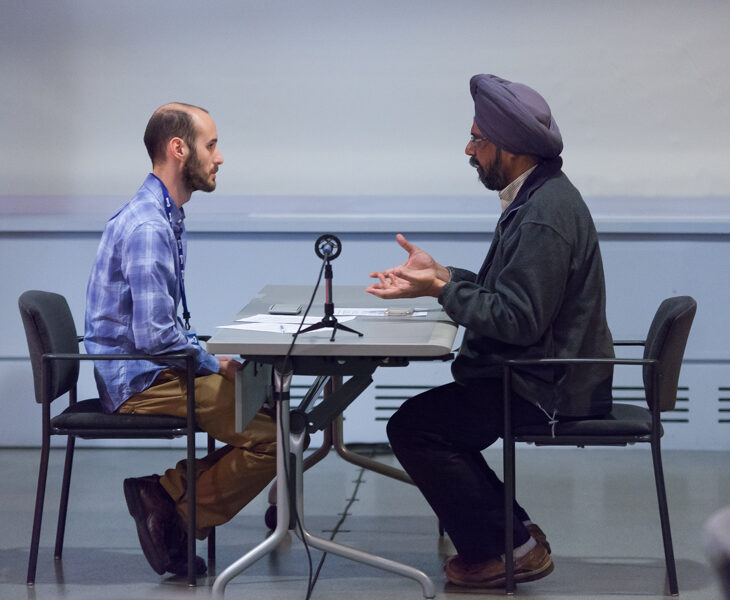
In the mid-1970s, our neighbors, Rose, a teacher and homemaker and her husband Charlie, a postman, accompanied my family to the federal courthouse to acknowledge and witness that we were of good character to become citizens of the United States. I feel in part they chose to take time out to do this because they got to know us, neighbors of a different faith and background, over conversations in the backyard and the occasional sharing of baked goodies. Maybe they could see the memory of their own grandparents in a similar position.
Encounters, engagements, and conversations across identities are critical in developing and maintaining the fabric of our civil society. These are experiential moments for us to share and grow. They happen on the playground when a child hears a name they are not familiar with. Or in the workplace when needing to schedule around a client’s sacred holiday. And hopefully with our neighbors over a bite on the back patio or front porch.
However, when these encounters don’t happen or are stunted, we lose out, both individually and collectively. The world we perceive becomes narrower, incomplete, and potentially false. This is why it is important that our local pickleball league, public library and community non-profits are able to hold space for these interactions.
Founded in 2004, Interfaith Philadelphia aims to be an intentional space for encounters across faiths in the City of Philadelphia and across the Greater Delaware Valley region. The region forms a rich quilting of neighborhoods for over 6 million individuals, including nearly every faith group, sect and interpretive nuance that can be found on Earth.
Share
Related Articles
Higher Education
What Does Interfaith Engagement Mean from an Evangelical Perspective?
American Civic Life
American Civic Life
Most currently, Interfaith America and Interfaith Philadelphia are collaborating on Foundations LIVE: the curated synchronous offering of Interfaith America’s course, Foundations of Interfaith Leadership.
It is fitting that an organization of the ethos of Interfaith Philadelphia plant in this place, as the city and the Commonwealth of Pennsylvania at large has been a space of relative religious liberty from the start. Founded by William Penn, a Quaker, the city from its earliest decades has been a home for those seeking to acknowledge and practice their faith or spirituality in their own special way. Early inhabitants not only came from overseas but even from other American colonies, where religious liberty was more tenuous.
That spirit bore fruit in the mid-20th century when Dr. Martin Luther King Jr. came to study in the Philadelphia area. He writes in “Stride Toward Freedom,” “One Sunday afternoon, I traveled to Philadelphia to the
Fellowship House at Broad and Girard to hear a sermon by Dr. Mordecai Johnson, president of Howard University. Dr. Johnson had just returned from a trip to India and spoke of the life and teachings of Mahatma Gandhi.”
Inspired by this history and the current bountiful spiritual environment, Interfaith Philadelphia facilitates programming for all ages. Youth participate in our Walking the Walk program for middle and high school students, visiting each other’s sacred spaces and learning the art of curious questions. Our Mosaic program over the summer engages students at the intersection of faith and the arts. For years, college students have been doing service projects and reflecting on the impact of their value traditions during Alternative Break.
A broader audience explores faith and the arts with the Rev. John B. Hougen in Art of Interfaith Understanding. During our inaugural session of our Dialogue: Face-to-Face series, a Jew and Muslim shared how their faith traditions hold space for disagreement and how that can inform interfaith conversations or wider discourse across society.
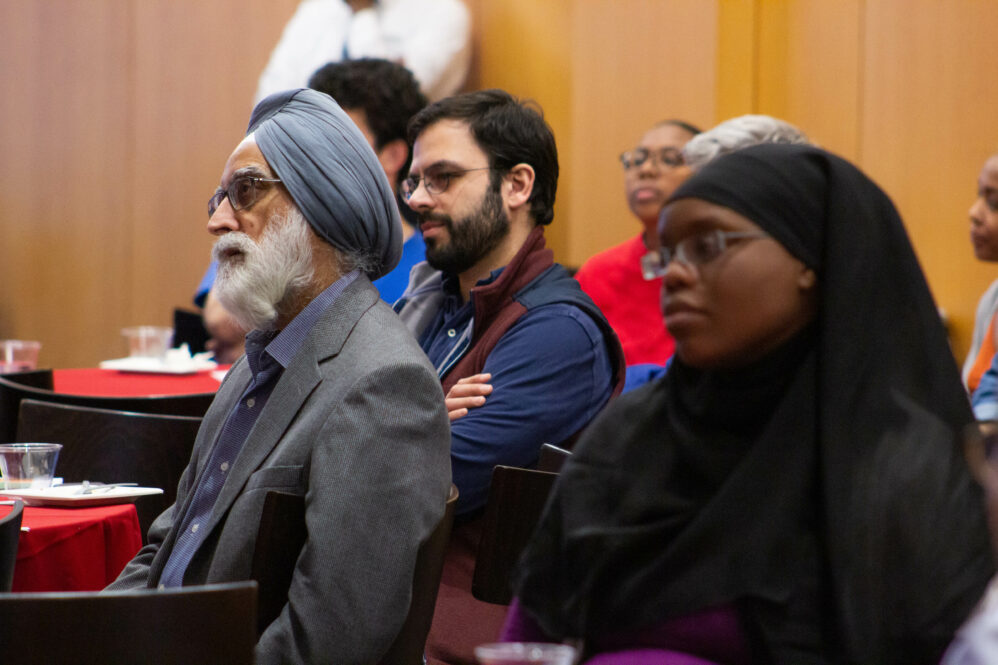
Photo courtesy of Interfaith Philadelphia
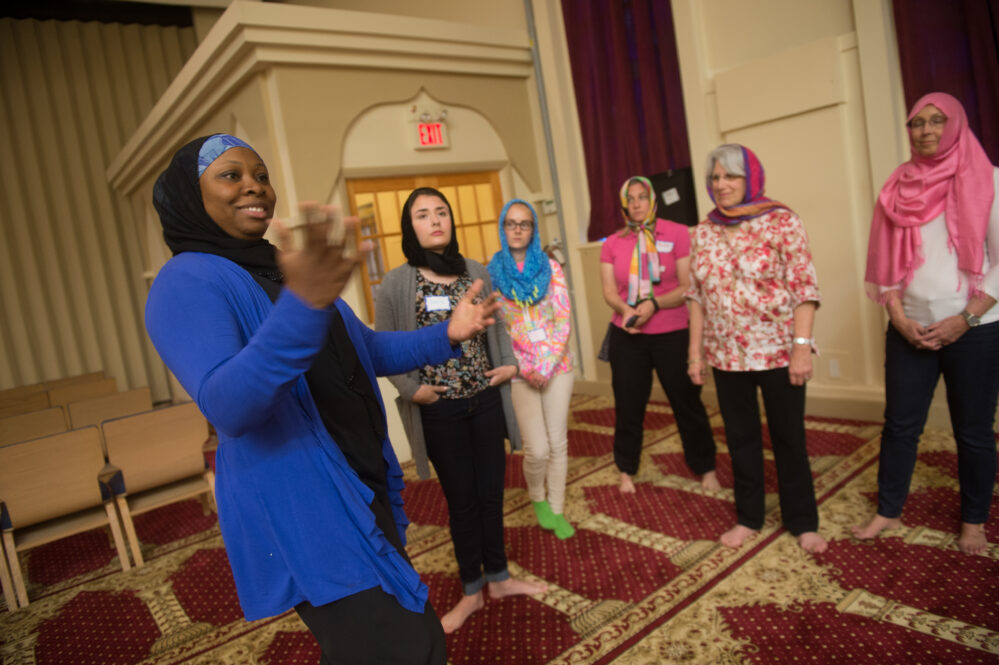
Photo courtesy of Interfaith Philadelphia. (Photo credit: Jacques-Jean Tiziou)
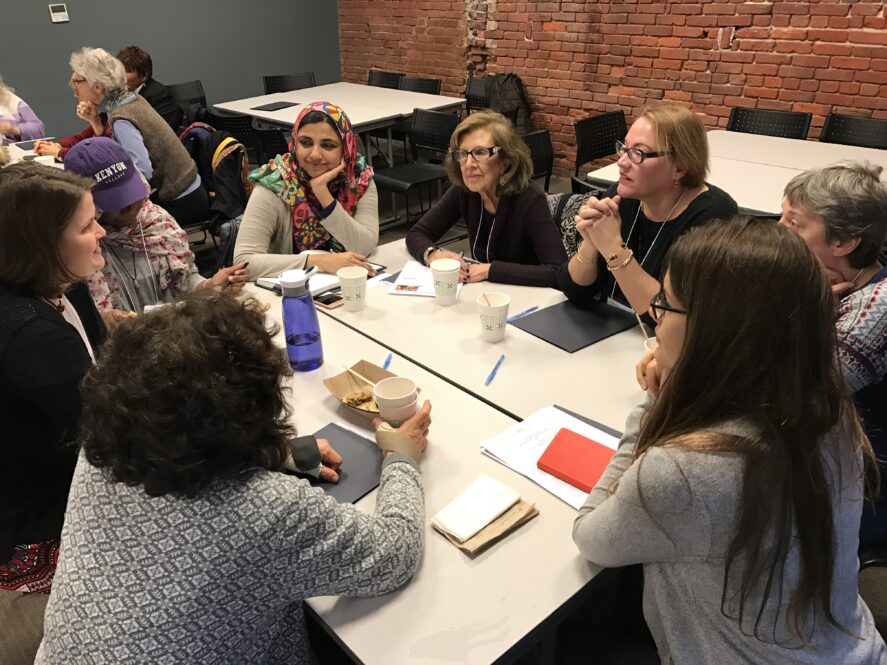
Photo courtesy of Interfaith Philadelphia
Mostly recently Interfaith Philadelphia has been developing partnerships. A partnership with the University of Pennsylvania’s School of Social Policy & Practice comes together in the Executive Program for Faith and Social Impact Certificate. Most currently, Interfaith America and Interfaith Philadelphia are collaborating on Foundations LIVE: the curated synchronous offering of Interfaith America’s course, Foundations of Interfaith Leadership.
The totality of these programs and the heartset that inspires these initiatives can be summed up in Interfaith Philadelphia’s motto, Dare to Understand. By taking a step towards and outstretching an arm we understand others and in turn ourselves better. And knowing ourselves better has deeply impactful implications. A saying of the Prophet Muhammad (peace be upon him) translates as, “Whosoever knows themself knows their Lord.”
In the early 1980s our family moved to suburban Charlotte, North Carolina. Our neighbors were the Iyers, an Indian Hindu family, and the Tontonis, an Italian Catholic family. We got to know each other over food, conversation and yard work. The Tontoni’s stepped into the role of grandparents as mine were a world away. I developed a taste for homemade pizzelles but more importantly, an appreciation and respect for Catholicism via their home that was meticulously adorned with symbols of their faith. For me, their home and company were a place of thoughtful advice and the occasional universal moral lesson. Without knowing it, we were all daring to understand one another.
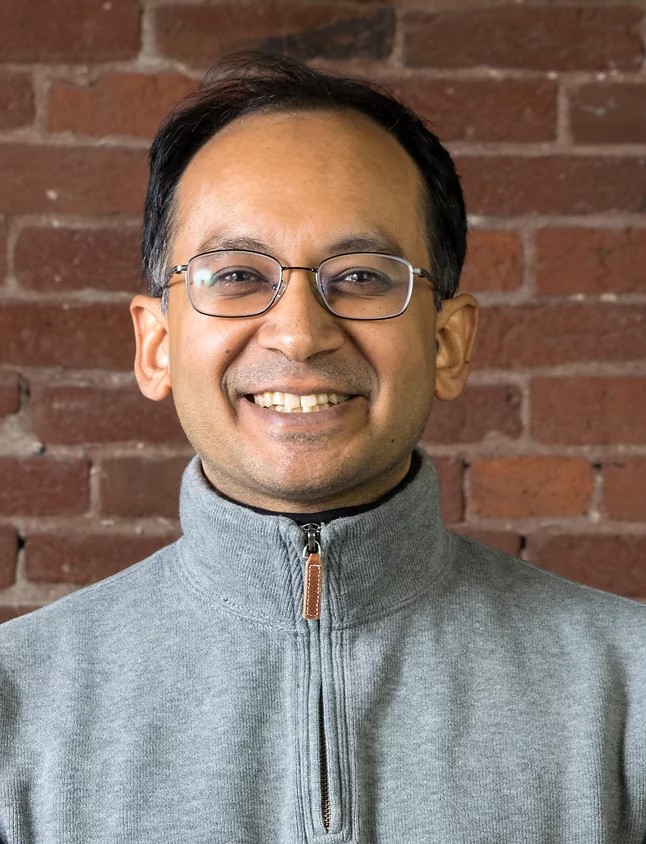
Asheq Fazlullah
Asheq Fazlullah is the Director of Leadership Institute at Interfaith Philadelphia. Additionally, he serves with Campus Ministry at Villanova University in the role of Muslim Student Advisor as well as an Affiliate Advisor at Swarthmore and Bryn Mawr Colleges. Asheq has given dozens of presentations on Islam and Muslim Americans at a variety of venues including faith centers, public and private schools, universities, senior centers, law enforcement, and local civic organizations across the Greater Delaware Valley.
Before beginning work in religious life and pastoral care, Asheq worked for nearly two decades in institutional finance in Boston, Hartford, and New York.



